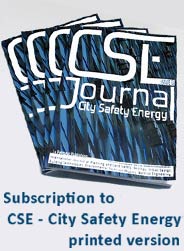Towards the Sustainability Assessment: A Case Study of International Indicators and the Trial Assessments of Kashiwa-no-ha Plans in Japan
Abstract
Keywords
Read the full text
Download PDFReferences
Gert de Roo and Geoff Porter (2007), Fuzzy Planning: The Role of Actors in a Fuzzy Governance Environment, Ashgate Publishing Ltd.
United Nations (1987), Report of the World Commission on Environment and Development: Our Common Future, http://www.un-documents.net/wced-ocf.htm
‘International Eco city Frameworks and Standards’ (2011), ©Ecocity Builders, http://www.ecocitybuilders.org/what-we-do/ecocity-standards/
Giffinger R, Fertner C, Kramar H, Kalasek R, Pichler N & Meijers E ‘Smart Cities: Ranking of European Medium-Sized Cities’, Austria (2007) Centre of Regional Science, Vienna University of Technology, http://www.smartcities.eu/download/smart_cities_final_report.pdf.
Worldwide City Concepts Analysis: Analysis mapping of over 30 city concepts dealing with sustainability issues - Christoph Rat-Fischer and Florian Rapp, European Institute for Energy Research (2012), Germany
Division for Sustainable Development, Commission on Sustainable Development, United Nations Department of Economic and Social Affairs (2001), ‘Indicators of Sustainable Development: Framework and Methodologies’
The ministry of Economy, Trade and Industry (2007), Eco-Towns projects/Environmental industries in progress, Japan
Chiba Prefecture, City of Kashiwa, the University of Tokyo, Chiba University (2008), The Kashiwa-no-ha International Campus Town Initiative,
http://www.pref.chiba.lg.jp/seisaku/keikaku/sougoukikaku/documents/gaiyou.pdf
Committee of International Campus Town Initiative (Chiba Prefecture, City of Kashiwa, Chiba University, the University of Tokyo, Urban Renaissance Agency, Mitsui Fudosan Co., Ltd) (2014), The Kashiwa-no-ha International Campus Town Initiative, http://www.udck.jp/town/CTI2014_web.pdf
Mitsui Fudosan Co., Ltd (2009), Smart City Project, http://www.smartcity-planning.co.jp/
Mitsui Fudosan Co., Ltd (2014), Kashiwa-no-ha Smart city project, http://www.kashiwanoha-smartcity.com/
DOI: http://dx.doi.org/10.12896/cse20140020018
Refbacks
- There are currently no refbacks.

This work is licensed under a Creative Commons Attribution 3.0 License.
CSE Journal - City Safety Energy is a semiannual journal (Two ISSUES per Year) published by Le Penseur in Brienza (PZ) - Italy | ISSN print edition 2283-8767 | ISSN online edition 2284-3418 - Journal registerd at the Court of Potenza (Italy) n. 219/2014


